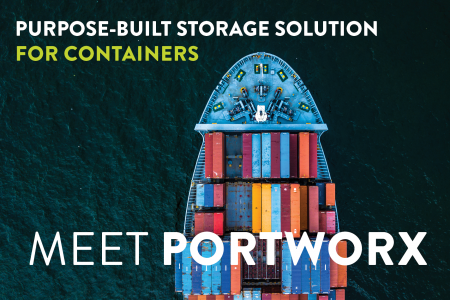Container technology has revolutionized IT, but storage technology hasn’t kept pace—until now.
In an ever-changing, multi-cloud world, businesses are under intense pressure to deploy new applications quickly. The answer is modern, container-driven application architectures.
Containers are dramatically more lightweight than virtual machines, offer increased application density, and the ability to move applications between clouds, bare metal servers, and data centers. But while container technology has revolutionized IT, storage technology hasn’t kept pace—it’s expensive, slow, and hard to manage.
Portworx is a modern, purpose-built storage solution. Designed from the ground up for containers, it reduces the complexity and cost of cost of rapidly deploying containerized applications across public and private clouds and on-premises environments.
Right-sizes, every time
Static partitioning, the allocation of separate, fixed slices of resources, was the traditional method of infrastructure isolation. Static partitioning made it easier to troubleshoot issues but often resulted in substantially underutilized hardware.
Application architectures built on containerization offer a new type of isolation. The same container can run in an on-premises data center, on bare metal hardware, or in the public cloud—no changes necessary. Containers are dramatically more lightweight than virtual machines, which allows for an increase in the density of applications by up to four times per host.
Portworx is an integral part of the container ops toolkit: manage any database or stateful service on any infrastructure, using any container scheduler. The result is a single data management layer for all your stateful services.
Dynamic volume provisioning and on-demand storage resizing allow enterprises to avoid over-provisioning storage resources; application clusters can over-subscribe storage resources and bring on additional storage capacity only when it’s needed.
Problem Solved
Implemented properly, and containers are a significant step forward for IT teams, but this new design pattern requires enterprises to solve problems not addressed by legacy storage systems or cloud block storage. Portworx solves the five most common issues DevOps teams experience when running containerized databases and other stateful services in production.
Persistence: Portworx creates a persistent data layer so that there is no data loss when a container fails. No matter where a container is scheduled, it always has its data.
High availability: When a server fails, a database container can fail along with it. Mitigating failure with custom hardware is expensive, and database-driven replication can be time-consuming and impact performance. Portworx’s persistent storage layer automatically spans hardware racks and availability zones so that databases and stateful applications can run uninterrupted by hardware failures or public cloud outages.
Scheduler-based automation: DevOps teams can’t wait days or weeks for container volume storage provisioning to deploy applications. Portworx integrates with the most popular container schedulers and makes stateful containers as easy to deploy and manage as the stateless parts of an app.
Data security: From regulatory requirements to customer trust, the importance of managing and maintaining data security is growing as fast as big data itself. Portworx provides secure, key-managed encryption for container volumes that integrates with popular key management systems. Encryption is independent of the cloud infrastructure and can be applied to any application.
Database management: Manage any database on any infrastructure on any platform. Portworx will automatically combine storage resources and create the right persistent storage for every app.
Cut ops costs
Thanks to an explosion of database and analytics options, a typical enterprise runs 10 or more different data stores as part of its container platform. The unique operational patterns of each data store require specialized DevOps expertise, often supplemented by an Enterprise Support Agreement from the database vendor. Staff costs can easily exceed a million dollars annually.
Portworx slashes the cost per database by increasing performance and decreasing resource consumption. But it can also reduce the overall cost of operation by reducing the manpower needed to run an individual database.
PX-Enterprise provides a single data storage and management layer for any stateful service that can be run by a single operations staff member, without any specialized database-specific knowledge. Deployment, upgrade, scaling, high availability, and backup and recovery automation reduces or eliminates the need for specialized support contracts from database vendors. The combined savings can total nearly $2 million per year for some large companies.
Reducing infrastructure costs is always a good thing, but in the hypercompetitive business landscape, cost cutting alone doesn’t drive success. Containers are a key to building an agile IT organization, but without a proven cloud-native storage solution like Portworx, teams struggle to containerize large numbers of applications, at best limiting the impact of container investments. At worst, a multi-million dollar container investment can fail.
Modern enterprises like GE Digital, Comcast, Verizon, Lufthansa Systems, T-Mobile, and Motorola all rely on Portworx to manage data for mission-critical containerized applications—across multiple clouds with zero downtime or data loss, while dramatically reducing infrastructure costs.
For more information on Portworx, and how Edge Solutions can help, contact us today.
